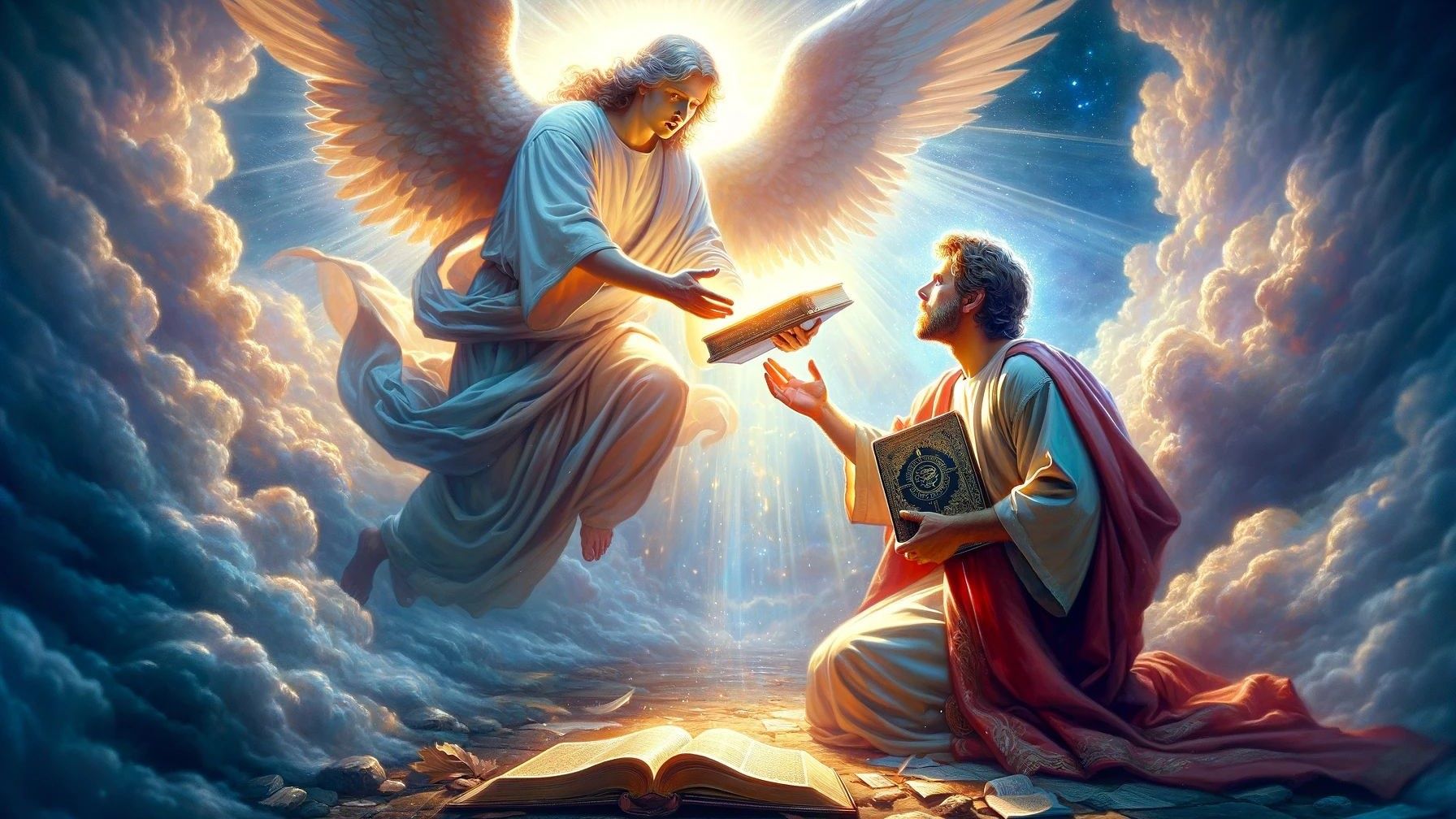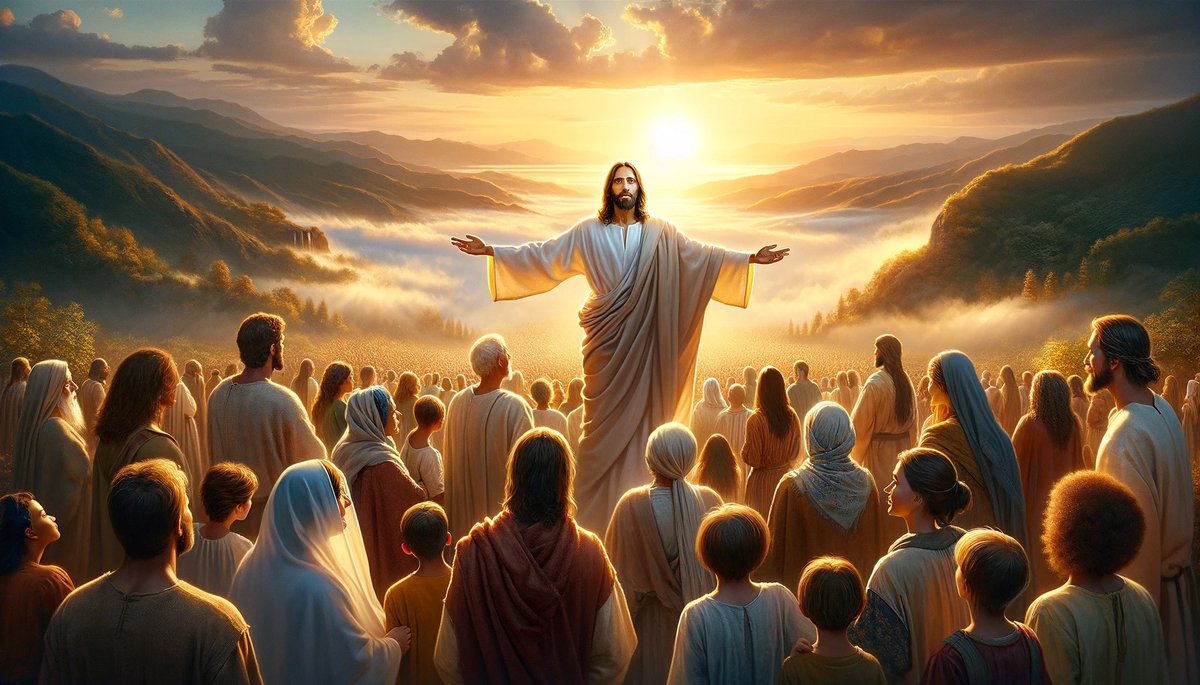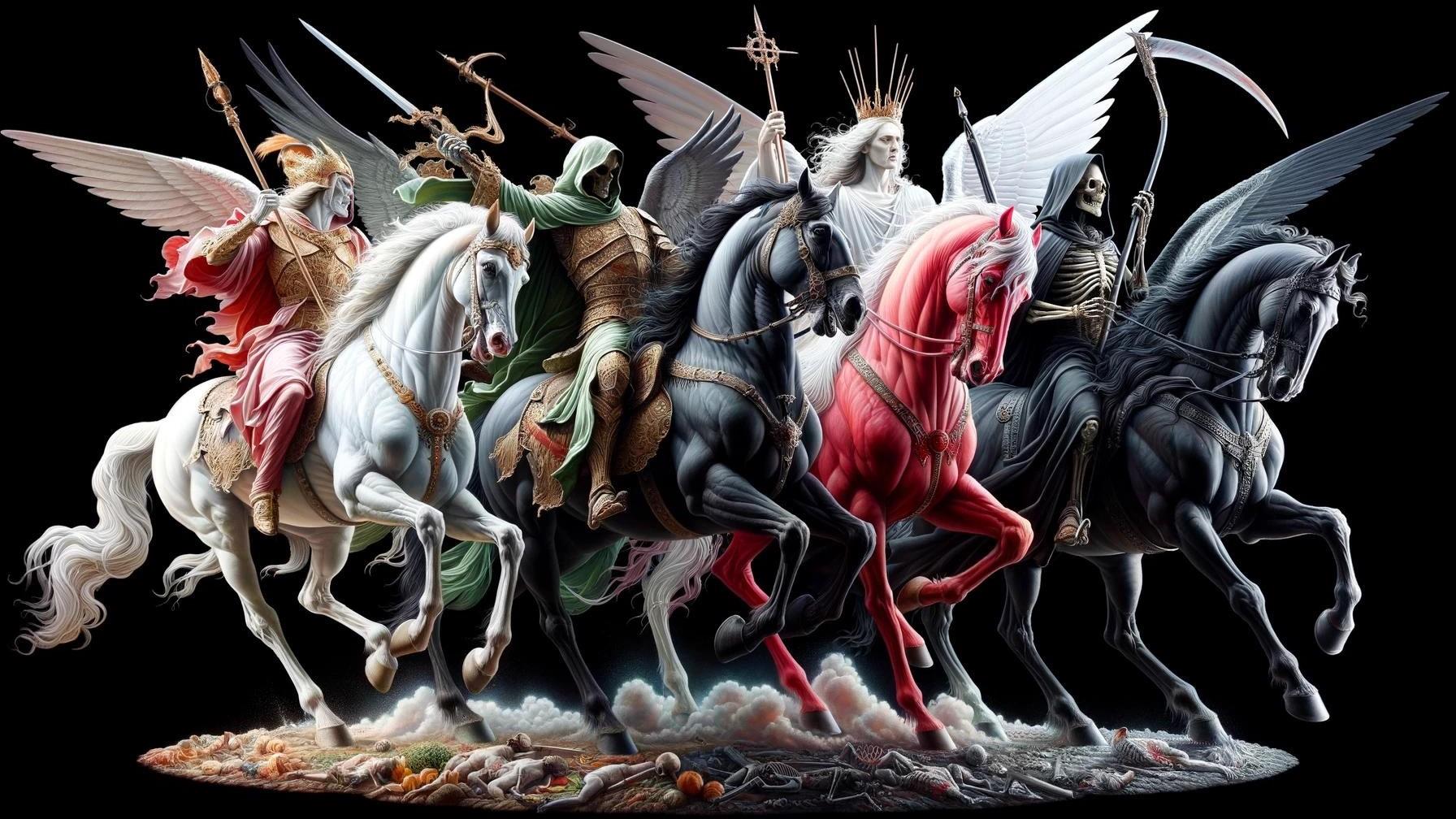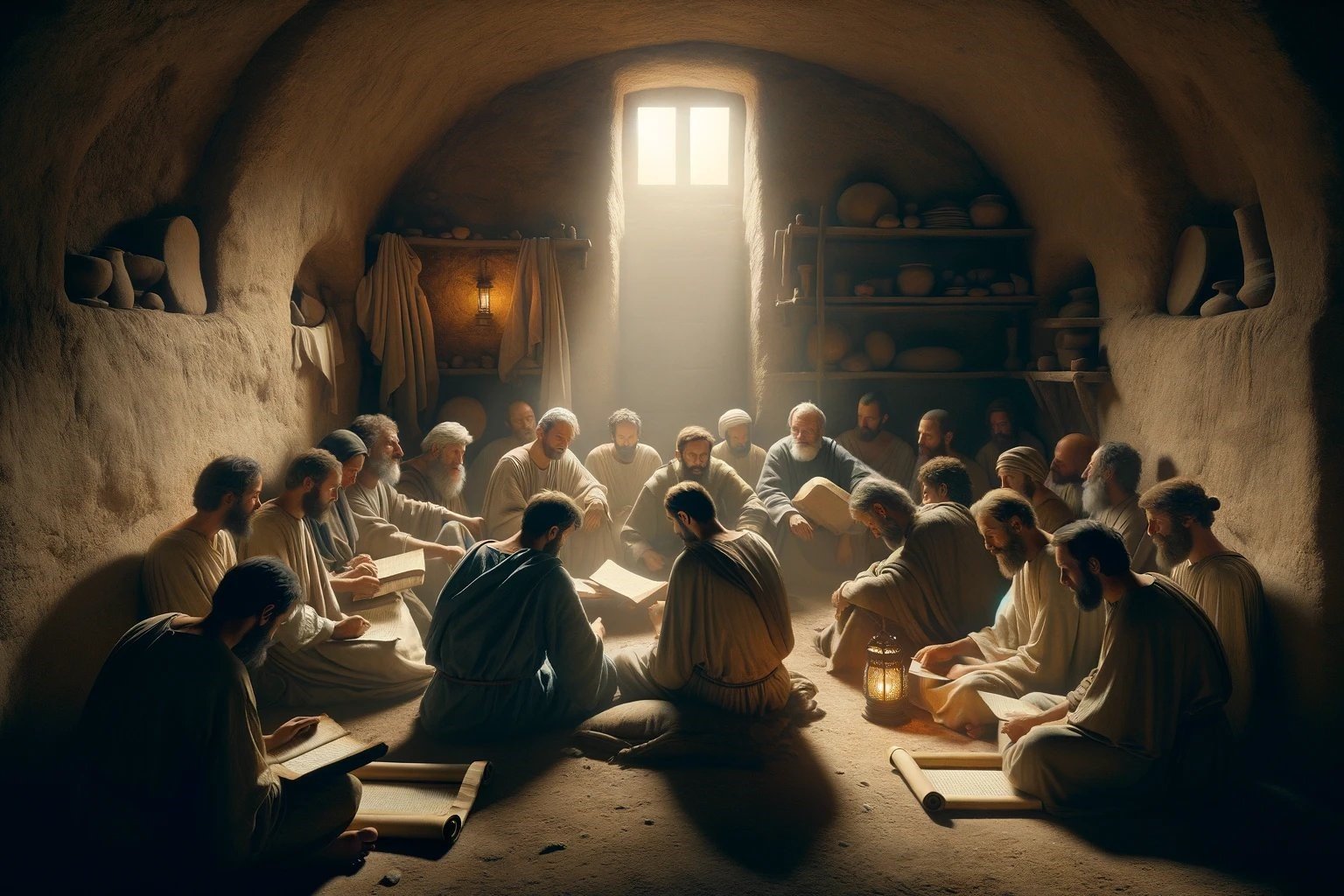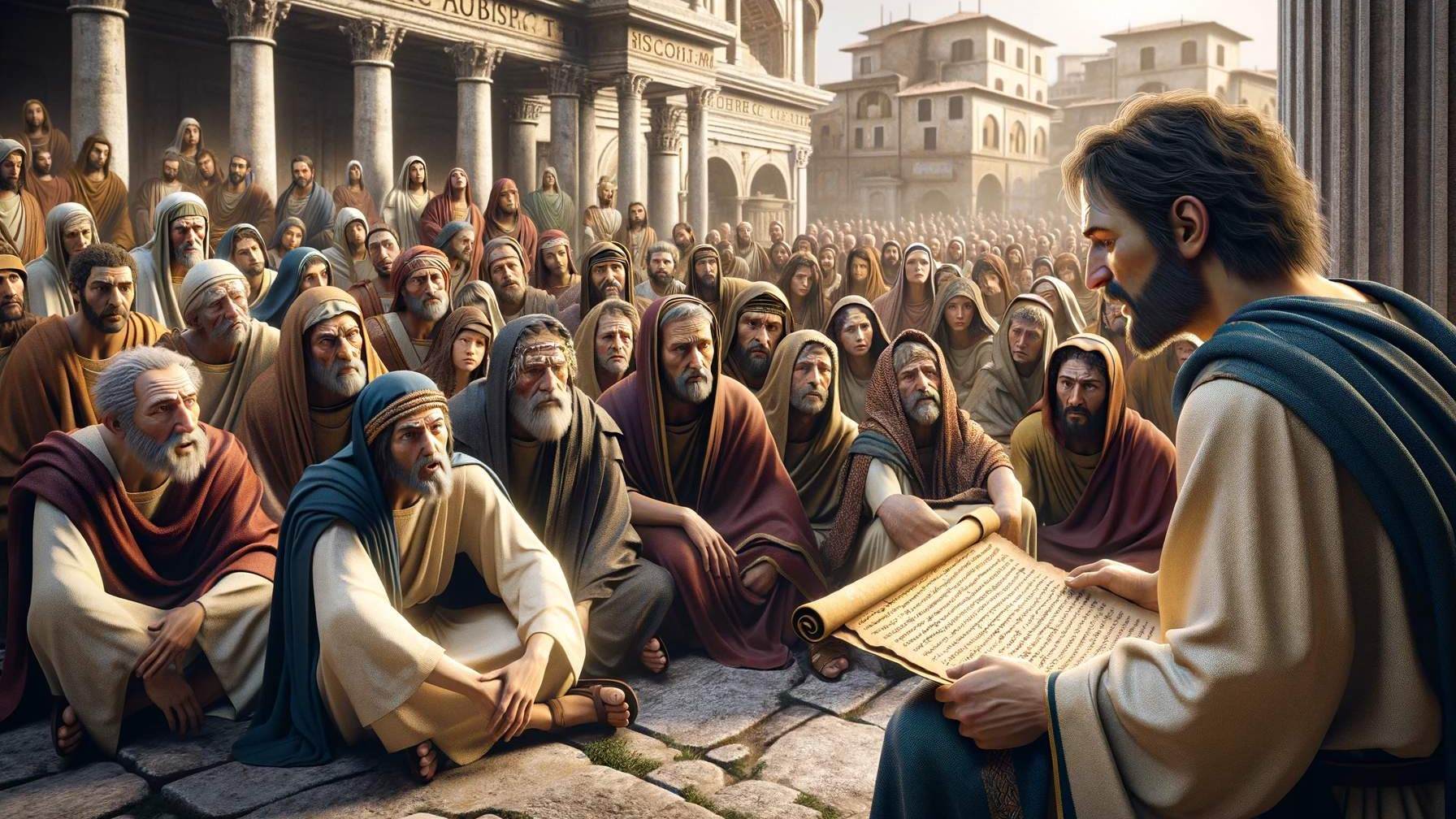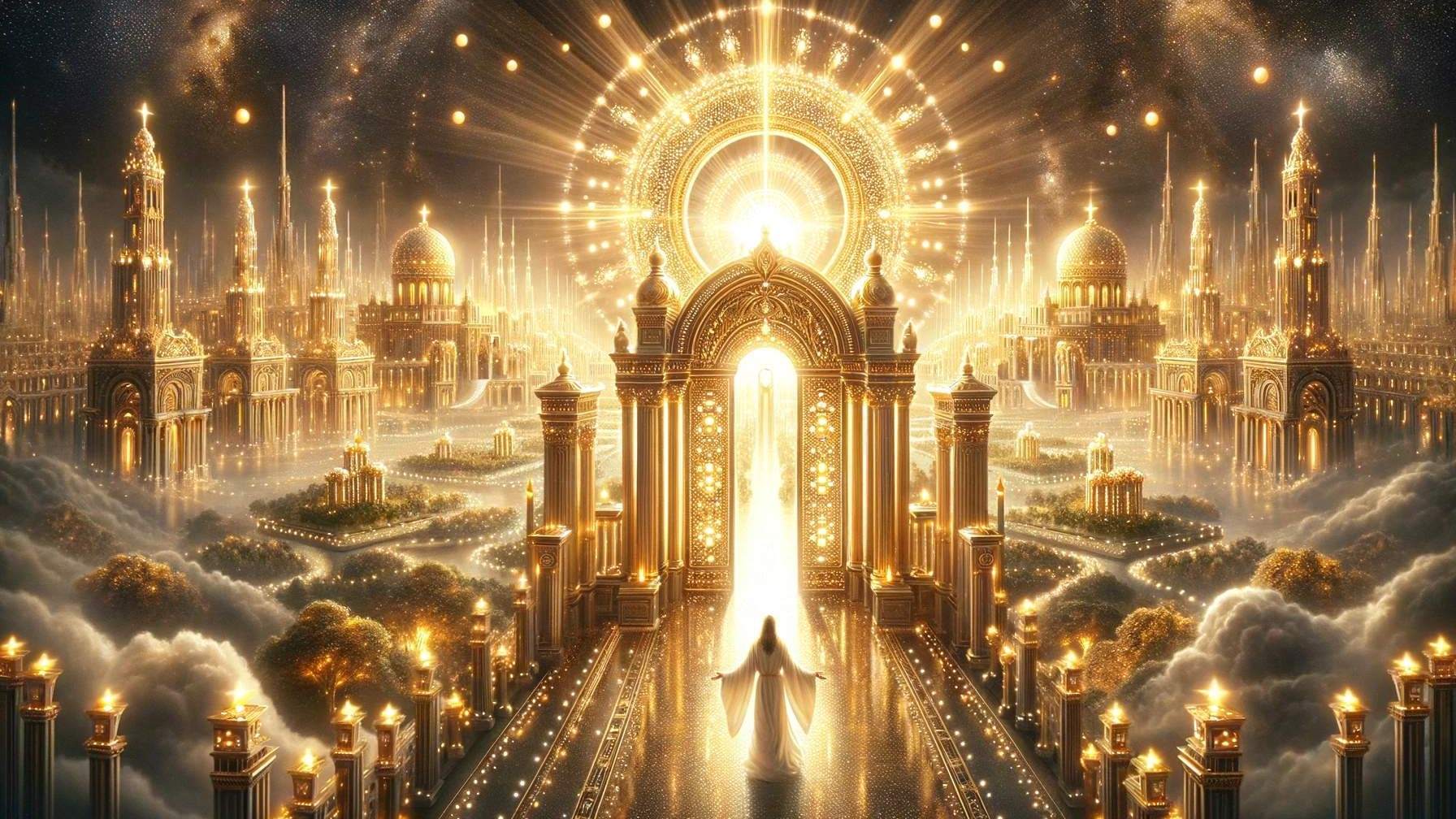Home>Bible Facts>In The Book Of Revelation, What Are The Seven Spirits Of God


Bible Facts
In The Book Of Revelation, What Are The Seven Spirits Of God
Published: February 11, 2024
Peter Smith, Editorial Director at Christian.net, combines deep insights into faith, politics, and culture to lead content creation that resonates widely. Awarded for his contributions to religious discourse, he previously headed a major organization for religious communicators, enhancing dialogue on faith's societal impacts.
Discover the significance of the Seven Spirits of God in the Book of Revelation and gain insightful Bible facts. Explore their meaning and relevance today.
(Many of the links in this article redirect to a specific reviewed product. Your purchase of these products through affiliate links helps to generate commission for Christian.net, at no extra cost. Learn more)
Table of Contents
Introduction
The concept of the "Seven Spirits of God" is a fascinating and enigmatic aspect of the biblical book of Revelation. This intriguing phrase appears in several key passages within the book, and its significance has been the subject of much theological discussion and interpretation over the centuries. The symbolism and meaning behind the Seven Spirits of God have captured the curiosity of scholars, theologians, and believers alike, prompting a deeper exploration into its implications within the context of Revelation.
Throughout the ages, the book of Revelation has captivated readers with its vivid imagery, prophetic messages, and profound symbolism. It is a book that offers a glimpse into the divine mysteries and the ultimate triumph of good over evil. Within this grand narrative, the mention of the Seven Spirits of God adds another layer of complexity and spiritual significance to the overall message conveyed in Revelation.
As we delve into the exploration of the Seven Spirits of God in the book of Revelation, it is essential to approach this subject with a sense of reverence and open-mindedness. The symbolic nature of the Seven Spirits invites us to embark on a journey of understanding that transcends literal interpretation, calling for a deeper spiritual discernment and insight into the divine mysteries encapsulated within the text.
In the subsequent sections, we will embark on a comprehensive exploration of the references to the Seven Spirits of God in Revelation, seeking to unravel the profound symbolism and spiritual implications embedded within these passages. By examining the various occurrences of this symbolic motif, we aim to gain a deeper understanding of its significance within the context of Revelation and its relevance to the broader themes of divine presence, wisdom, and spiritual enlightenment.
The Seven Spirits of God in Revelation 1:4
In Revelation 1:4, the mention of the Seven Spirits of God is intricately woven into the opening salutation of the book, setting the stage for the prophetic revelations that follow. The verse reads, "John to the seven churches that are in Asia: Grace to you and peace from him who is and who was and who is to come, and from the seven spirits who are before his throne." This invocation of grace and peace from the Seven Spirits of God holds profound significance, serving as a divine benediction upon the recipients of the letter.
The symbolism of the number seven holds great importance in biblical numerology, representing completeness, perfection, and divine fullness. The Seven Spirits of God, therefore, embody the multifaceted nature of the divine presence, encompassing the fullness of the Holy Spirit's attributes and manifestations. This symbolic portrayal underscores the omnipresence and omniscience of God, signifying His all-encompassing nature and sovereign authority over creation.
The reference to the Seven Spirits of God in Revelation 1:4 also aligns with the broader theme of divine revelation and spiritual enlightenment. The seven churches in Asia to whom the letter is addressed represent the collective body of believers, and the invocation of grace and peace from the Seven Spirits underscores the universal applicability of these divine blessings to the entire Christian community. It conveys the message that the fullness of God's grace and peace is extended to all believers, transcending geographical and cultural boundaries.
Furthermore, the positioning of the Seven Spirits of God "before his throne" emphasizes their proximity to the divine presence, signifying their integral role in the heavenly realm. This imagery evokes the concept of divine counsel and spiritual guidance, portraying the Seven Spirits as agents through whom God's wisdom and discernment are imparted to humanity. Their presence before the throne serves as a testament to their exalted status and their active involvement in the divine governance of the universe.
In essence, the mention of the Seven Spirits of God in Revelation 1:4 serves as a profound affirmation of the divine attributes and their manifold manifestations within the realm of human experience. It encapsulates the richness of God's grace and the tranquility of His peace, invoking a sense of spiritual reassurance and divine favor upon the recipients of the letter and, by extension, upon all who embrace the message of Revelation.
The Seven Spirits of God in Revelation 3:1
In Revelation 3:1, the reference to the Seven Spirits of God is intricately intertwined with the message addressed to the church in Sardis. The verse reads, "And to the angel of the church in Sardis write: 'The words of him who has the seven spirits of God and the seven stars. I know your works. You have the reputation of being alive, but you are dead.'"
The mention of the Seven Spirits of God in this context serves as a poignant reminder of the multifaceted nature of the divine presence and its relevance to the spiritual condition of the church in Sardis. The symbolism of the Seven Spirits ascribed to God underscores the completeness and perfection of the Holy Spirit's attributes, signifying the fullness of divine wisdom, discernment, and spiritual empowerment.
The specific mention of the Seven Spirits of God in conjunction with the church in Sardis carries profound implications for the spiritual state of the congregation. The juxtaposition of the church's reputation of being alive with the sobering reality of spiritual deadness underscores the need for genuine spiritual revival and restoration. In this context, the Seven Spirits of God symbolize the transformative power of the Holy Spirit, capable of breathing new life and vitality into the spiritually complacent and stagnant.
Furthermore, the reference to the Seven Spirits of God in Revelation 3:1 aligns with the broader theme of spiritual discernment and divine insight. The divine omniscience represented by the Seven Spirits underscores God's intimate knowledge of the church's true spiritual condition, transcending outward appearances and delving into the depths of the heart. This serves as a sobering yet hopeful message, emphasizing the potential for spiritual renewal and restoration through the transformative work of the Holy Spirit.
The imagery of the Seven Spirits of God in Revelation 3:1 also conveys the idea of divine empowerment and guidance. The fullness of the Holy Spirit's attributes, represented by the number seven, signifies the sufficiency of God's grace and wisdom to address the spiritual needs of the church in Sardis. It serves as a reminder of the abiding presence of the Holy Spirit, offering spiritual illumination and guidance to navigate the challenges and obstacles faced by the congregation.
In essence, the mention of the Seven Spirits of God in Revelation 3:1 serves as a poignant call to spiritual introspection and renewal, highlighting the transformative power of the Holy Spirit to revitalize and restore the spiritual vitality of the church. It underscores the timeless relevance of the divine attributes embodied by the Seven Spirits, offering hope and encouragement for spiritual revival and restoration within the faith community.
The Seven Spirits of God in Revelation 4:5
In Revelation 4:5, the depiction of the Seven Spirits of God is intricately interwoven with the awe-inspiring vision of the heavenly throne room, where the apostle John is granted a glimpse into the divine majesty and splendor. The verse reads, "From the throne came flashes of lightning, rumblings, and peals of thunder. In front of the throne, seven lamps were blazing. These are the seven spirits of God."
The imagery presented in Revelation 4:5 evokes a profound sense of divine grandeur and spiritual significance. The blazing lamps, symbolizing the Seven Spirits of God, stand as a testament to the radiant presence and illuminating power of the Holy Spirit. The portrayal of these seven lamps as being "before the throne" underscores their proximity to the divine presence, signifying their integral role in the heavenly realm and their active participation in the divine governance of the universe.
The symbolism of the number seven holds deep biblical significance, representing completeness, perfection, and divine fullness. In the context of the Seven Spirits of God, this symbolism conveys the multifaceted nature of the Holy Spirit's attributes and manifestations. The blazing lamps serve as a visual representation of the Spirit's illuminating presence, shedding light upon the mysteries of God and bringing clarity to the divine revelations unfolding within the heavenly realm.
Furthermore, the accompanying imagery of lightning, rumblings, and peals of thunder emanating from the throne accentuates the majestic and awe-inspiring nature of the divine presence. This vivid portrayal underscores the transcendent power and sovereignty of God, with the Seven Spirits being an integral part of this divine manifestation. The convergence of these symbolic elements serves to evoke a sense of reverence and wonder, inviting contemplation on the profound mysteries encapsulated within the heavenly throne room.
The depiction of the Seven Spirits of God in Revelation 4:5 serves as a poignant reminder of the omnipresence and omniscience of the Holy Spirit, symbolized by the blazing lamps before the throne. It conveys the message of divine illumination, spiritual empowerment, and the all-encompassing nature of God's wisdom and discernment. This portrayal invites contemplation on the transformative and illuminating work of the Holy Spirit, inspiring awe and reverence for the multifaceted manifestations of the divine presence within the celestial realm.
In essence, the mention of the Seven Spirits of God in Revelation 4:5 serves as a profound testament to the radiant presence and illuminating power of the Holy Spirit within the heavenly throne room, evoking a sense of wonder and spiritual awe at the multifaceted manifestations of the divine presence.
The Seven Spirits of God in Revelation 5:6
In Revelation 5:6, the portrayal of the Seven Spirits of God unfolds within the context of a profound celestial vision, offering a glimpse into the majestic scene surrounding the central figure of the Lamb. The verse reads, "And between the throne and the four living creatures and among the elders I saw a Lamb standing, as though it had been slain, with seven horns and with seven eyes, which are the seven spirits of God sent out into all the earth."
The imagery presented in Revelation 5:6 encapsulates a rich tapestry of symbolism, each element contributing to the multifaceted portrayal of the divine presence and its manifold manifestations. The Lamb, bearing the marks of sacrifice and redemption, stands as a central figure within the heavenly tableau, radiating a sense of profound significance and divine purpose. The mention of the Lamb's possession of seven horns and seven eyes, which are explicitly identified as the Seven Spirits of God, underscores the integral role of the Holy Spirit in the redemptive work and divine governance unfolding within the celestial realm.
The symbolism of the number seven holds deep biblical significance, representing completeness, perfection, and divine fullness. In the context of the Seven Spirits of God, this symbolism conveys the all-encompassing nature of the Holy Spirit's attributes and manifestations, signifying the omnipresence and omniscience of God's divine wisdom and discernment. The portrayal of the Seven Spirits as being "sent out into all the earth" underscores their universal scope and their active involvement in the outworking of God's redemptive purposes throughout the world.
Furthermore, the imagery of the Lamb, bearing the marks of sacrifice and standing amidst the heavenly assembly, evokes a sense of reverence and awe. The convergence of the Lamb's sacrificial identity with the possession of the Seven Spirits of God serves as a powerful testament to the redemptive and transformative work of the Holy Spirit within the cosmic narrative of salvation. It underscores the integral role of the Holy Spirit in the outworking of God's redemptive plan, infusing the celestial vision with profound implications for the unfolding drama of divine restoration and renewal.
In essence, the depiction of the Seven Spirits of God in Revelation 5:6 serves as a poignant testament to the all-encompassing nature of the Holy Spirit's attributes and manifestations, underscoring their universal scope and integral role in the divine governance and redemptive purposes unfolding within the celestial realm and throughout the earth.





